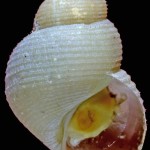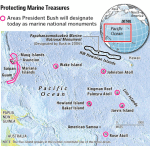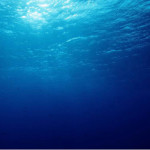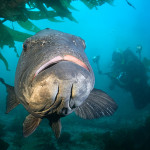![]()
 There is much buzz these days about marine protected areas (MPAs) and no-take zones. We are approaching the age of assessment. There has been enough time passed where we should see a signal of improvement to verify conservation theory. While the data has been trickling in for many MPAs and there is in general an improvement in various metrics, like fisheries stocks or biodiversity, none is more convincing of the benefit of MPAs than reported for endangered penguins in a new study by Pichegru and colleagues.
There is much buzz these days about marine protected areas (MPAs) and no-take zones. We are approaching the age of assessment. There has been enough time passed where we should see a signal of improvement to verify conservation theory. While the data has been trickling in for many MPAs and there is in general an improvement in various metrics, like fisheries stocks or biodiversity, none is more convincing of the benefit of MPAs than reported for endangered penguins in a new study by Pichegru and colleagues.
In January 2009, a reserve was set up in South Africa to benefit the endemic black-footed penguin*. While a reserve may be set up with a specific goal or species in mind, they are static boundaries that encapsulate everything that lives in or passes through it. It was unclear how the penguins would respond to the reserve as they are a highly mobile top predator and their prey (sardines and anchovy) are even more mobile and migratory. Additionally, their prey are also fished by humans, directly in competition with the penguins.
The authors collected data in Spring 2008 prior to the reserve’s establishment and approximately a year later during Spring 2009 after the reserve was closed to purse seine fishing for 4-6 months. Data were collected in the reserve site (St. Croix Colony) and at a nearby site that was open to fishing the entire time (Bird Island). Purse seine vessels were monitored via satellite for compliance.

What was interesting is that none of the diving metrics differed between years or colonies, such as dive time and depth and penguin body mass. What did change was trip behavior. The figure at left shows the density of foraging dives pre (top) and post (bottom) reserve establishment. Trip length, trip duration, and maximum distance from colony were significantly less between years and between colonies.
What does this mean for the penguins? Penguins are expending less energy traveling for food after their breeding season, saving up to 43% of the daily energy expenditure! This is presumably because there are more fish in vicinity since purse seiners are not competing for resources with the penguins, evidenced from data between colonies post-MPA.
It will be interesting to follow these colonies to see if the MPA ends up recruiting more penguins into St. Croix colony due to the foraging success of its current inhabitants. With prey not as limiting a resource, density dependent effects, i.e. overcrowding, might be a concern in the future. There could also be spillover effects from the MPA. More fish in the MPA might mean more fish overall in the region and nearby unprotected colonies and fishermen may both reap the rewards.
*Disclaimer: I used to take of black-footed penguins at Monterey Bay Aquarium and am immensely biased in this report. Go Penguins!! :)
Pichegru, L., Gremillet, D., Crawford, R., & Ryan, P. (2010). Marine no-take zone rapidly benefits endangered penguin Biology Letters, 6 (4), 498-501 DOI: 10.1098/rsbl.2009.0913






One Reply to “Penguins Immediately Benefit From MPA”
Comments are closed.